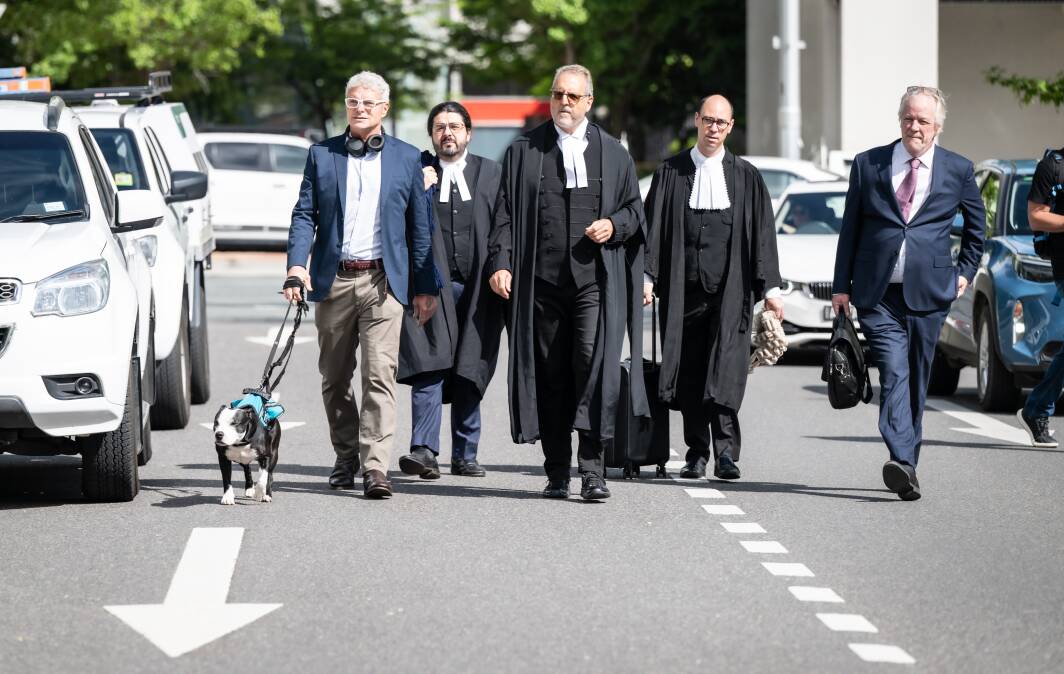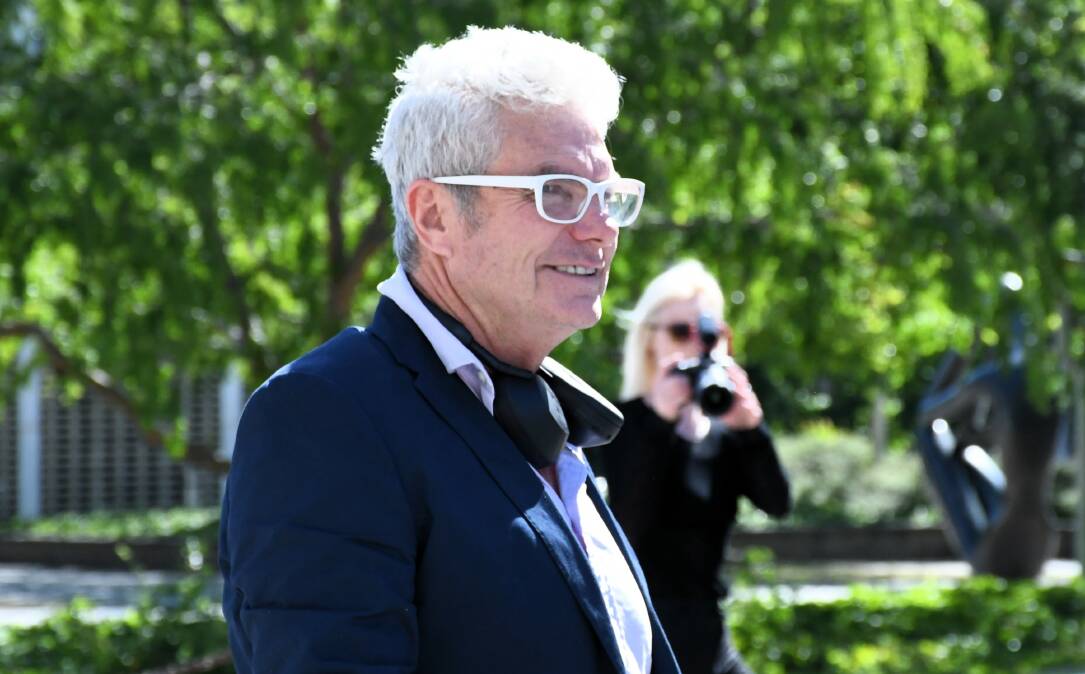A court is set to "go full spooky" as parts of sentencing for military whistleblower David McBride may be held in secret, a judge has said.
The former military lawyer, who leaked classified defence documents to journalists, was set to face the start of sentencing proceedings next week, but it has been delayed.
McBride previously pleaded guilty to three charges relating to the theft and disclosure to journalists of classified documents, which detailed alleged misconduct by Australian troops in Afghanistan.
Lawyers for McBride have said he leaked information in the public interest to address what he viewed as the over-investigation of troops over alleged war crimes.
In the ACT Supreme Court on Wednesday, lawyer for McBride, Emmanuel Kerkyasharian, asked for sentencing to be delayed, saying the defence needed time to respond to new evidence.
Mr Kerkyasharian said the prosecution planned to file an affidavit from a high-ranking official in the Australian Defence Force, containing "a series of contentions on what would arise on the speculative dissemination of documents to the public".
He told the court the parties were still in negotiations to agree to a statement of facts outlining the crimes.
While the "vast majority" would be agreed, Mr Kerkyasharian foreshadowed "in the worst-case scenario" the case may go to a contested facts hearing.
However, if "hypothetical risks of harm" were explored there would be "volumes of evidence", he told the court.

A lawyer for the Commonwealth, Christopher Tran, stated the affidavit was not an independent expert report but "something almost like a victim impact statement".
Andrew Berger KC, lawyer for the Attorney-General, said the court may need to be closed to the public at times in order to discuss evidence sensitive to national security.
Justice David Mossop stated "we may have to go full spooky in terms of court set up".
The judge vacated the upcoming sentencing but said both parties had "probably" failed in providing adequate assistance to a registrar in setting the date.
"It is essential for parties who are appearing before any officer of the court for the purposes of directions that they be fully conscious of the way proceedings may unravel," Justice Mossop said.
"A lack of attention or too much confidence that there will be an outbreak of agreement leads to circumstances, such as the present, where court time has been allocated and will not be used."

McBride was set to face a jury trial last year, but a decision ruling classified documents were protected via public interest immunity, coupled with a pretrial ruling on jury directions, resulted in a "fatal blow" to the defence case.
McBride attempted to lodge an appeal of this decision, but it was refused.
The documents McBride leaked to journalists led to an inquiry that uncovered credible information of 23 incidents of potential war crimes, which involved the killing of 39 Afghans and cruel treatment of two more between 2005 and 2016.
The report found 25 soldiers were perpetrators or accessories - some on a single occasion and some on multiple.
In March last year, Oliver Jordan Schulz, a former special forces soldier, became the first Australian to face a war crime charge of murder.
McBride's case is next set to go before a registrar on Thursday, when a new date is expected to be set for sentencing.







